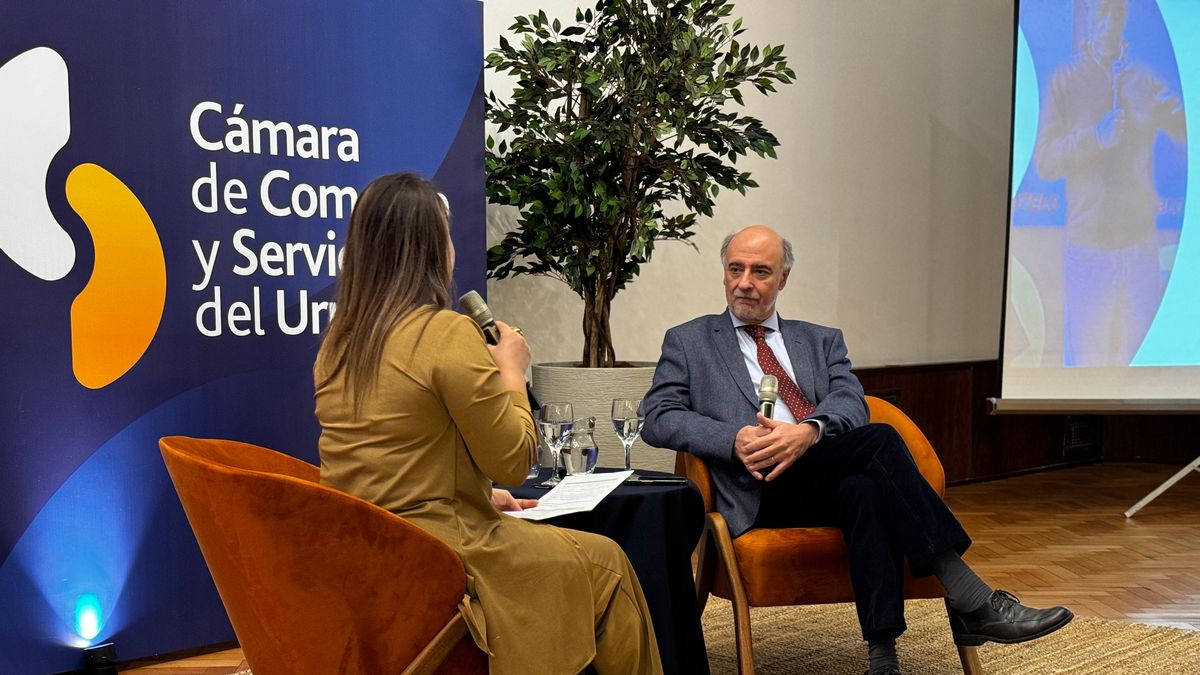Investments and taxes
In his speech, he also took the opportunity to comment on some ideas regarding the investments. “We are not in favour of introducing new taxes, it seems that this is already at its absolute limit. We believe that Comap, which is the commission linked to investment promotion, should work much faster, it should have a speed of decision-making,” he commented.
“You probably have to think about automatic approvals subject to subsequent control to ensure that they are effectively fulfilled. There are complaints from the productive sector, from the business sector, that initiatives are presented and delayed and remain in the queue and there are I don’t know how many now unresolved,” added the presidential candidate.
Mieres made special reference at this time in his message to economic issues and the need decrease, but accompanied by the state reform that his party has promoted, but has not been able to fully implement during this period of government.
“He Uruguay has to promote the investments, It has to help improve competitiveness and productivity. There is a path that is fundamental and that has to do with a package that is pending, which is the reform of the State. That is, there has to be a modification of the functioning of the State. State “Not to minimize it or reduce it or anything, the idea is not neoliberalism, but a State that is at the service of the people,” he said.
Along these lines, the independent candidate presented one of the campaign proposals that his party will present in what is planned to be a second edition of the “Commitment to the country”consisting of the programmatic content of the parties that would compete in a coalition format with the Broad Front in the event of a possible runoff.
There the IP proposes the creation of a subsidy similar to unemployment insurance for independent workers who invoice through sole proprietorships. The former Minister of Labor justified it in this way: “When the crisis came, pandemic, The instruments that we had for dependent workers were absolutely crucial to sustaining work and businesses. Partial unemployment insurance, flexible unemployment insurance, extensions permanent by sector, etc. But it was for dependent workers”
“The workers who were billing went from one hundred to zero from one day to the next, because the activity ceased. There were some very limited subsidies of three months, etc. What we have to create is a subsidy for cessation of activity for those workers, some 40 or 50 thousand who are not dependent but who may have the circumstance of falling from one day to the next. Our proposal is that there be a subsidy for cessation of activity that is equivalent to the unemployment insurance that dependent workers have. It is an example of incentives for formalization that we have to develop,” said Mieres.
Policies on tourism
The promotion of tourism was another of the issues that the independent candidate placed in his message, in line with the need to obtain new markets in order to “extend” the high season. “Tourism is a backbone of the growth of the economy, part of the productive matrix. In addition to employment, it generates a multiplication of favorable impacts and, therefore, it is a priority for us,” he stressed.
“We must work on diversifying the tourist offer, Uruguay It is very focused on sun and beach tourism and that leads to a short and very impressive harvest. We should think about the Chilean market, Speaking of sun and beach, because Chileans spend their summers right in the month when fall begins, in February,” Mieres proposed.
No to the proposals of trade unionism
Finally, the PI candidate did not avoid giving his opinion on the two main proposals that the trade union has placed in the debate towards the election campaign, On the one hand, the plebiscite to repeal the social security reform but also the possibility of reduce working hours at 6 hours.
Regarding the latter, Mieres said that it is a matter of putting “the cart before the horse”. “If you do not improve productivity, it is very difficult to talk about reducing the working day. They go hand in hand, otherwise, who pays the bill?” he asked.
Regarding the popular consultation that will be held next October along with the national elections, Mieres stated that “it is really surprising how the PIT-CNT decided to support this type of proposal, which is not exclusively linked to the reform we made last year. It is a proposal that takes the social security system into account.”
He continued by stating that “the calculations made by the technicians, without any political intention, tell us that the social security deficit “In 30 years, the deficit in pensions would increase by 5 times the GDP point compared to what it would have grown with the reform we made last year.” “To put it more clearly, in 2050 the deficit in retirement and pensions would increase by 1 point of GDP, with this reform it would increase by 5 points. That is nonsense. It is really leading the social security system to collapse,” he said vehemently.
“The problem with this is that it comes in a very attractive package. And that is where we have to fight, because the package is: ‘this is so that you can retire at 60 and also to raise minimum pensions to the level of the national minimum wage’. That is what they tell you,” he said.
“They also say that they are going to eliminate the Afap, “They don’t have a good press among a part of the population. So, good, nice and cheap. But they don’t tell them how much the bill is and how the bill is paid,” he added, attracting the attention of the audience, notoriously linked to the business and commercial sector. “The bill is big, it is very high, it is enormous, it is extremely serious. We have to tell people,” he added.
“The third component is that your salary will be reduced, because if they deduct 15% from you, but when the social security deficit increases, they will deduct 20, 25 and 30%, that is a salary reduction,” he explained.
“In addition, they put in the Constitution of the Republic is 60 years old, first there is no country in the world that has a retirement age in the Constitution, because it is a mobile variable that depends on demographic changes. And in Uruguay They have the characteristics of countries that have a retirement age that does not go below 65. And some today are thinking of reaching retirement age at 70. Why? For a very simple reason, because life expectancy for those 60 100 years ago was 3 years. Now it is 20 and more. So, how do you pay that bill? “, concluded the candidate.
Source: Ambito




